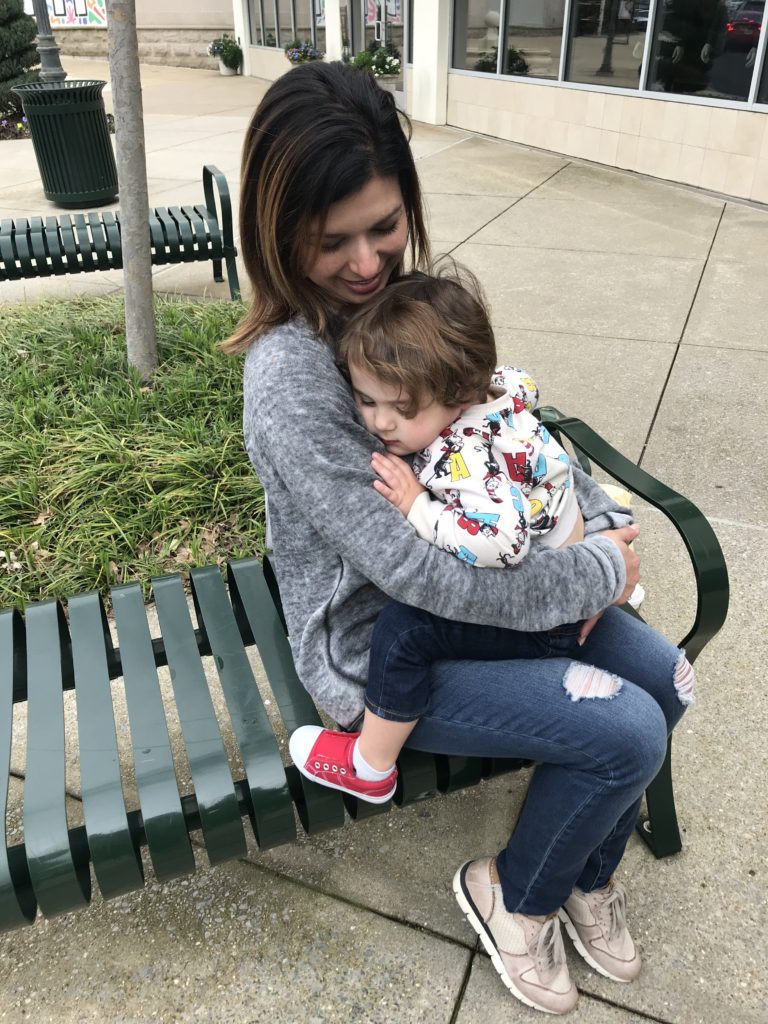“The old life is gone; a new life burgeons! Look at it! All this comes from the God who settles the relationship between us and him, and then called us to settle our relationships with each other.” (2 Corinthians 5:17, MSG)
Last time in “Our Struggle is Not Against Flesh and Blood,” I focused on how the enemy weasels into our life and how to reinforce change against similar, future attacks. In this next blog, I will address how the Holy Spirit reveals our own heart to us in our battles with the enemy, along with any unhealthy patterns we have cultivated into our lives that might have given the enemy a foothold.
When our world starts to fall apart, it doesn’t usually take us long to soul- search for its roots of cause and effect. With the past dating relationship I shared about in my last blog, there was conflict and loss, but these kind of experiences are not at the expensive of just waste and pain. They can reveal so much about ourselves and the relationships in our life.
I admit I had a very hard time writing this third section of my blog. Becoming frustrated in the process, I stopped writing the piece and went back to journaling. I had to make sense of it and get to the bottom of the heart-issues: Where am I with the issues in my current relationships, and do I truly have it sorted out? What am I responsible for? With others, what should I look for next time so that the outcome is different? Otherwise, if I am having a hard time naming it, I cannot change it (MacDonald 67). Since I recently finished reading Gordon MacDonald’s book Rebuilding Your Broken World, I will be using only the titles to two of his main/sub-points, focusing on what I feel is most important in learning from the broken parts of our world: know your history and know yourself as a sinner (This second point will be addressed in my next blog titled “Continually Redeemed”).
Know your history. Have you ever tried to unlearn something that you had learned the wrong way? We all have. For a lot of us, this may stem all the way back to our childhood where certain attitudes, habits, and behaviors were modeled for us. For me, my family history of passive-aggressive behaviors that I learned as a child, especially when dealing with conflict in relationships, was not working for me. Passive-aggressive in my family looks something like this when two are at odds with one another: No one likes to communicate about the conflict at hand. It is easier for everyone to act like nothing ever happened. We will be cordial with each other when we have get-togethers, but deep down, none of us are really moving on. Rather, we are holding on to the hurts and pain caused by each other in the past, so naturally we don’t healthily work through our conflicts. Over time, a wedge builds in our hearts toward each other. Consequently, the relationship is tested and overcomes the adversity, or worse, holding onto the offense becomes more important than the relationship. If it’s the latter, bonds are destroyed, and the relationship becomes nonexistent.
I recognized these same passive-aggressive tendencies in myself. I would go a long time before saying anything if I was upset about something or with someone. Next, I would allow frustration to build up in me if similar conflicts continued. Instead of conversing about things as they happened, I held things in and acted like everything was okay; eventually the frustration came out in ways that did not foster a healthy relationship. I would eventually confront the person about something on a much smaller scale they had done recently that aggravated me rather than tackle the real problem. With some, I would just simply spend less time with them.
I knew things had to change. I needed to be true to myself and true to the other person if I wanted a firm foundation in those relationships that were important to me. This verse displays pure honesty where our words and actions should align:
“But above all, my fellow believers, do not swear, either by heaven or by earth or with any other oath; but let your yes be [a truthful] yes, and your no be [a truthful] no, so that you may not fall under judgment” (James 5:12, AMP).
No wonder the blow ups or blow outs would come when I handled conflict with others in a passive-aggressive way. I had presented to the other person a facade that everything was okay when it really wasn’t. This is nothing less of being superficial with ourselves, others, and in our relationships:
“And do not be conformed to this world [any longer with its superficial values and customs], but be transformed and progressively changed [as you mature spiritually] by the renewing of your mind [focusing on godly values and ethical attitudes], so that you may prove [for yourselves] what the will of God is, that which is good and acceptable and perfect [in His plan and purpose for you]” (Romans 12:2, AMP).
Being real in our relationships with each other takes spiritual maturity with a whole new infrastructure of values and ethics that are usually in opposition to our learned, worldly ways. This transformation teeters on whether we will forfeit or embrace God’s best for our life of what He intended for us. Being a Christian means moving forward into God’s ordained design for our new spiritual life in Him:
“Therefore if anyone is in Christ [that is, grafted in, joined to Him by faith in Him as Savior], he is a new creature [reborn and renewed by the Holy Spirit]; the old things [the previous moral and spiritual condition] have passed away. Behold, new things have come [because spiritual awakening brings new life]” (2 Corinthians 5:17, AMP).
Look at this version of the verse as it includes, with our new life, how it should affect our relationship with others:
“The old life is gone; a new life burgeons! Look at it! All this comes from the God who settles the relationship between us and him, and then called us to settle our relationships with each other” (2 Corinthians 5:17, MSG).
Being a new creation in Him and not conforming any longer to the ways of the world means we change the way that we do our relationships and the way that we think about our relationships with each other. This change can be hard though because we are more familiar with the “old way of doing things,” those patterns fabricated and habits developed into our relationships, that any change that might bring uneasiness and uncertainty would be better off avoided. It involves the two accepting, adjusting, and confronting the problems at hand, and rarely are two people on the same page at the same time about issues. That’s why it’s called conflict. As long as we are in relationships on this earth, conflict is inevitable. Talking about issues you are having with another person is scary. It involves confrontation, and it involves the awkward awareness and realization of self in relation to each other. Satan’s threats entered here for me when I moved in a progressive direction for change in my relationships:
If you “shine a light” on the weaker parts of the relationship, the other person will be offended and feel like you are finding fault in them. (Yes, this has happened to me!)
If you confront these problems in the relationship, you will lose them. (Yes, this has happened to me!)
No matter how you present it or what you say, you will be misunderstood. (Yes, this has happened to me!)
If you bring up the past, they will accuse you as someone who is holding onto offense and label you as “unforgiving”. (Yes, this has happened to me!)
They won’t see it as communication but as an aggravation of the situation, seeing you as one who causes drama. (Yes, this has happened to me!)
In my relationships that needed some type of mending or revamping, all of the threats of Satan that preyed on my fears as the possible outcome did happen to me in some way, form, or fashion. Some welcomed the boundaries and borders; some were flustered by the confrontation of making things better. Nonetheless, once this “clean sweep” took place, what seemed like a lot of uncertainty in the outcome of these relationships was exactly what I needed. In confronting the issues in myself and in my relationships, I gained peace in understanding the relationships better; I gained respect for who I was in Christ as an instrumental part of the growth in my relationships; and I gained new and healthy relationships, beginning wiser with truthful yes’s and truthful no’s.
Instead of being locked into my history of how I handle others, and as a new creation in Him, I look to the Scriptures to point me in the direction I hope to follow in my relationships (Matthew 5:23-24; Romans 12:17-21; Proverbs 19:11; Ephesians 4:31-32; Colossians 3:12-14; and Matthew 18:15, etc., NIV). It takes careful obedience on my part to follow His instructions for me in His Word, and it takes godly wisdom to confront issues in relationships. Relying on God’s wisdom, I am thankful that all I have to do is ask Him for it! (James 1:5, NIV).
Photo by Roman Kraft on Unsplash









